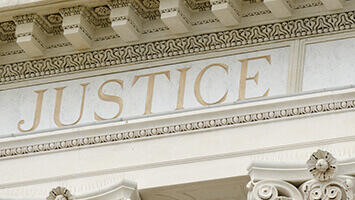
On April 28, 2021, the New Jersey Supreme Court decided the Mercer County case of State v. Omar Vega-Larregui. The principal issue concerned the constitutionality of virtual grand juries.
Justice Albin wrote for a unanimous Court in relevant part: As a temporary emergency response to the easy transmissibility of the deadly airborne coronavirus, the Supreme Court authorized grand jury presentations in a virtual format, first in a pilot program and later on a statewide basis. In this appeal, defendant Omar Vega-Larregui and various amici curiae organizations claim that the virtual grand jury format — and therefore the lack of an in-person proceeding — violates the right to a grand jury presentation and other constitutional provisions. They also claim that the Supreme Court does not have the constitutional authority to order temporary virtual grand jury presentations for the duration of the pandemic.
On March 9, 2020, Governor Philip Murphy declared a Public Health Emergency and State of Emergency in response to the COVID-19 pandemic. The Court canceled all new civil and criminal jury trials until further notice on March 12, 2020, and all grand jury sessions and the selection of new grand jury panels on March 17, 2020. To keep the criminal and civil justice system functioning, by April 24, the Judiciary had turned to technology and conducted more than 12,000 virtual proceedings. The Court established the Working Group on Remote Grand Jury Operations to examine whether, and if so, how, grand jury proceedings could resume in a virtual format while in-person gatherings are suspended because of COVID-19. The Working Group recommended that grand jury operations resume in certain counties in a virtual format in a manner that upholds the solemnity and secrecy of those proceedings and safeguards the rights of defendants, victims, jurors, and the public.
The language used by the Court in the first sentence of the opinion indicates that it is going to hold that virtual grand juries are constitutional under the circumstances. This is not surprising when considering that the Court is being called upon to uphold the constitutionality of its own decisions. Under the circumstances, the defense and amici are likely planning on appealing to the United States Supreme Court.
